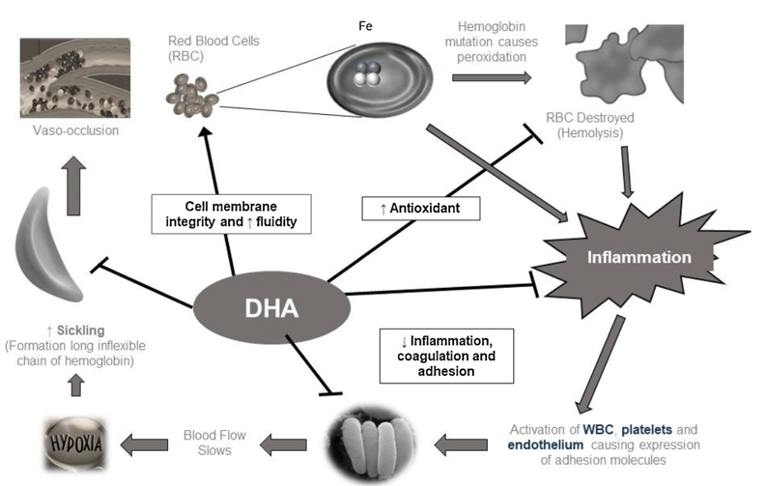Sickle cell disease (SCD) is a genetic hematologic disorder with a complex pathophysiology. It is characterized by the presence of an abnormal version of beta hemoglobin known as hemoglobin S (HbS), leading to severe hemolytic anemia, episodic vaso-occlusive crisis (VOC), inflammation, and progressive end organ damage. A few pathophysiology-based therapeutic options for SCD are being developed, primarily targeting inflammatory pathways.
Omega-3 fatty acids are known to have an impact on a variety of physiological processes. EPA and DHA are the major bioactive omega-3 fatty acids, and their anti-inflammatory effects have been demonstrated.
By compiling the vast literature, researchers have found evidence that treatment with DHA improves abnormal SCD blood cell membrane fatty acid composition, rheological properties of SCD RBCs, inflammation, and hemolysis. Clinical studies have also reported improvements in the frequency of VOCs. Overall, the combination of experimental and clinical results supports the potential therapeutic role of omega-3 fatty acids, specifically DHA, in SCD (shown below) and encourages further development of DHA as a safe, effective, and affordable therapeutic option for children and adult SCD patients.

Daak, A. A., Lopez-Toledano, M. A., & Heeney, M. M. (2020). Biochemical and therapeutic effects of Omega-3 fatty acids in sickle cell disease. Complementary Therapies in Medicine, 52, 102482. [Link]
